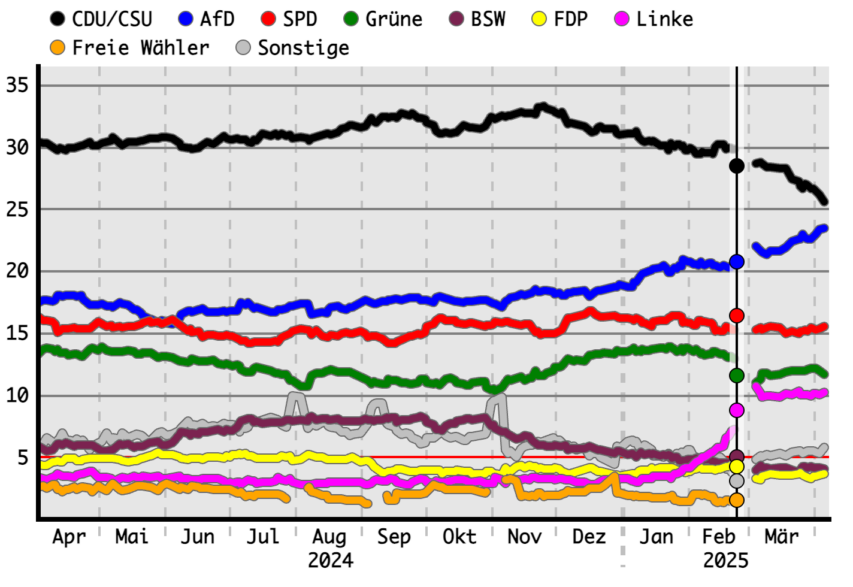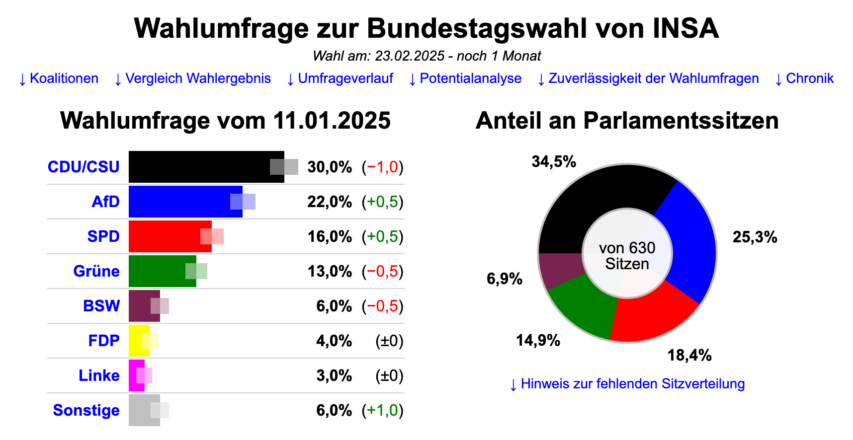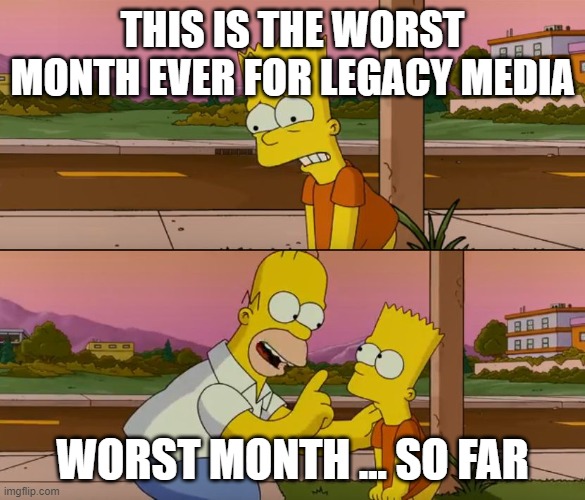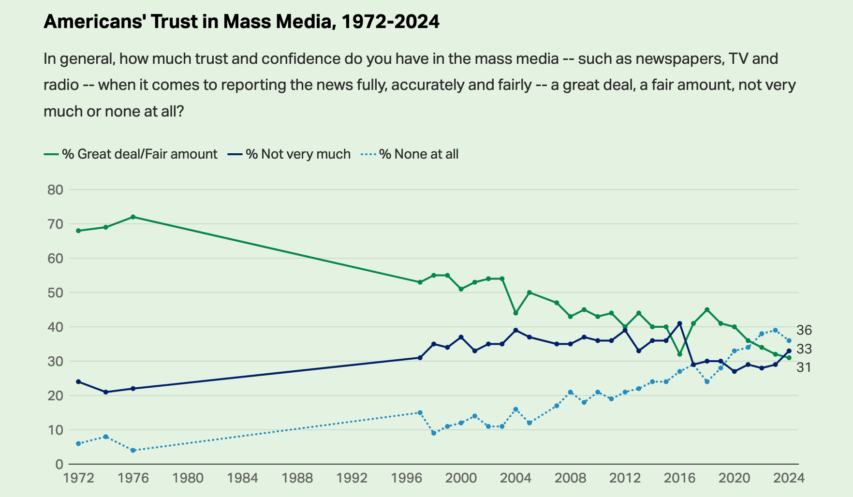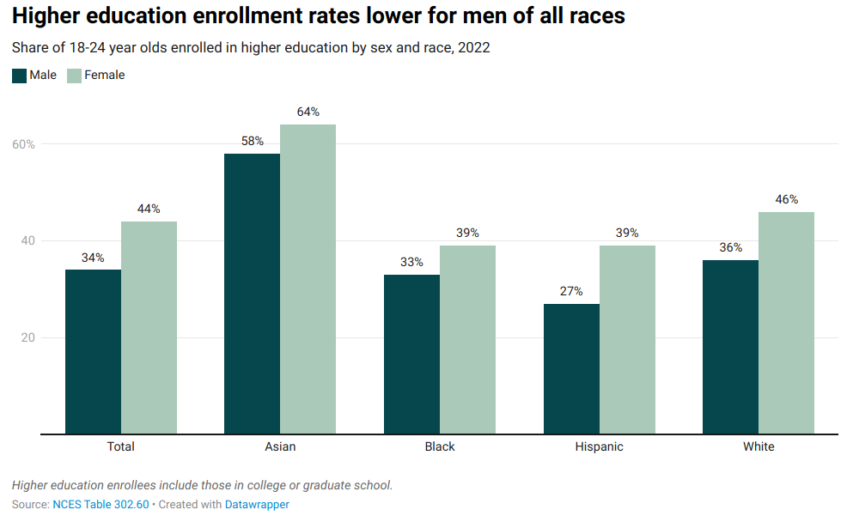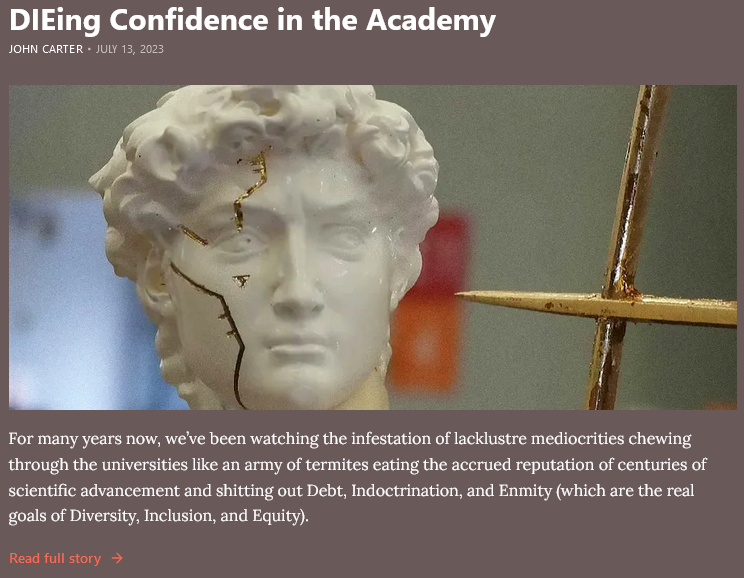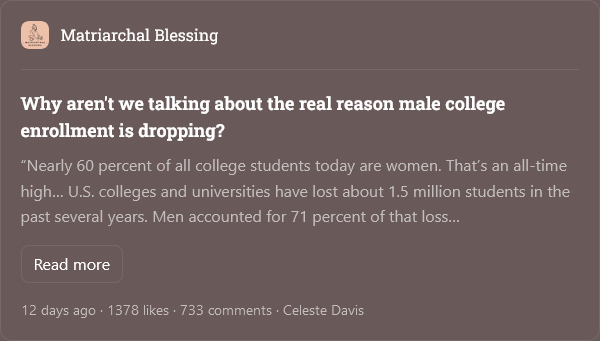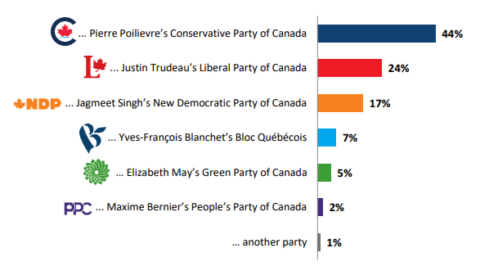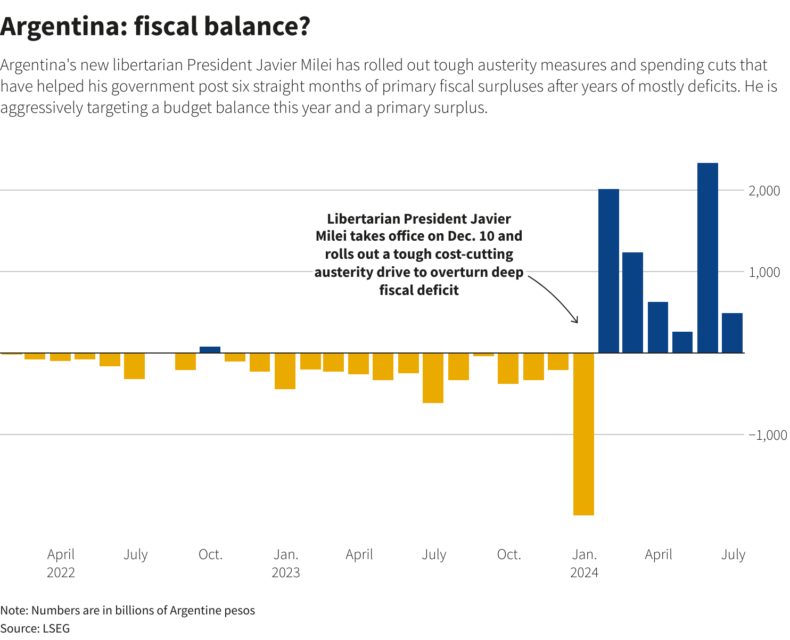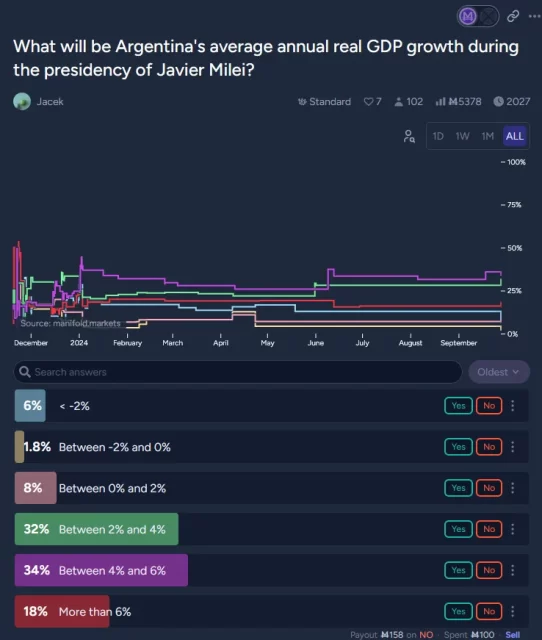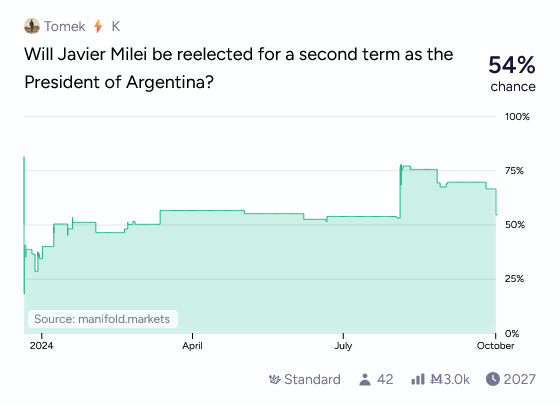Despite the heroic efforts of the progressives in the Bundestag (and the media and in the EU bureaucracy), the dangerous demagogues of the extremely extreme extreme right AfD are now equally popular with those benighted, detested, dunderheaded “voters” as the almost-as-dangerous extreme right in the CDU:
It has finally happened: Alternative für Deutschland are no longer the second-strongest party in Germany; for the first time ever, they have pulled dead-even with CDU/CSU in a representative poll. Both claim 24% support in the latest INSA survey, conducted for BILD between 31 March and 4 April. It is the strongest poll result the AfD have ever received.
The results are partly symbolic and well within the margin of error (2.9 percentage points), but the trend is clear, and nobody seriously doubts that in the coming weeks AfD will assume the lead and become the strongest-polling party across the Federal Republic.
The running average of all major polls – which lags a week or two but yields the clearest view possible of the trend – looks like this:
The Union parties have been experiencing a slow but steady collapse in support as their voters abandon them in ever greater numbers for their hated blue rival. The erosion began after Friedrich Merz struck a deal with the disgraced Social Democrats (SPD) to overhaul the debt brake with the outgoing Bundestag, contrary to one of his primary campaign promises. Everything we’ve heard about the disastrous coalition negotiations with the SPD in the weeks since have confirmed the image of a careless, inexperienced yet ambitious CDU chancellor candidate, desperate to ascend to the highest political office, whatever the cost. Back in 2018, Merz pledged he would cut support for the AfD in half and drive his party back to 40% supporter or higher. He has achieved very nearly the opposite, plunging his future government to the depths of unpopularity before it is even formed and ceding first place to his most hated rivals. It is a farce beyond what even I could’ve imagined.
There is no plan or strategy here; Merz has no idea what he is even doing. He and CDU/CSU leadership did have a brief flash of insight back in January, when they reached across the firewall to vote with the AfD on legislation to restrict migration. Back then at least, they knew they had to show the left parties they had other options, or they would be destroyed in coalition negotiations with any potential “democratic” partner. Leftist activists took to the streets and Merz rapidly retreated, returning to his standard denunciations of the AfD and pledging never to vote with them again. In return for a measure of mercy from Antifa, Merz voluntarily led his party into a trap, ceding all possible leverage over a radicalised SPD, who will force the Union parties to swallow one poison pill after the other. It is a win-win for them. They get what they want and they get to grind the CDU and the CSU to dust at the same.
The election might be over, but make no mistake – these poll results matter. First, collapsing support deprives the CDU options in the present. They can’t walk away from the negotiating table and seek new elections, because they know they’d come out of them vastly worse. Their terrible numbers further strengthen the negotiating position of the SPD, who will force the CDU to accept still more damaging compromises, driving CDU support even lower. Then we must remember that federal elections are not the only game in town. The rank-and-file of the CDU have to contend in an array of district elections in the coming months, and five state elections are approaching in 2026, including two in East Germany (Mecklenburg-Vorpommern and Sachsen-Anhalt) that may well end in the collapse of the firewall at the state level. Dissatisfaction with Merz inside the CDU is widespread and growing.

